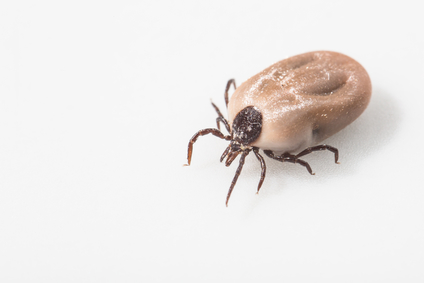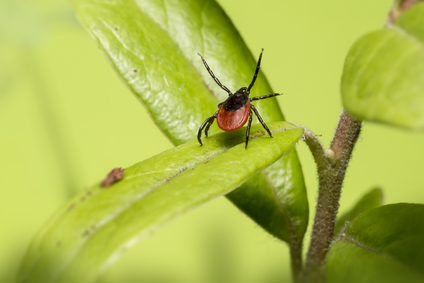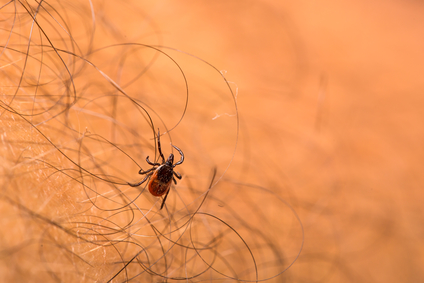3 Little-Known Tick-Related Diseases
Ticks here, ticks there, ticks everywhere. Why do they have to be such a nuisance? This is a question that may have crossed your mind at one point. These tiny creatures can be such a pain! They cause untold suffering to both animals and human beings. Despite their small size (just a bit more than an eighth of an inch), they are a real threat. They not only dig into your skin for a blood meal, but they also transmit diseases the longer they remain undetected.
Most people know about Lyme Disease, one of the most dreaded tick-related illnesses. However, there are others to take note of. Read on to learn three more.
The Twin Illnesses: Ehrlichiosis and Anaplasmosis

As you enjoy the summer evenings outdoors, beware of ticks that may be on the prowl and longing to get a juicy blood meal from you. And with that bite may come twin illnesses that you might confuse for the flu.
Ehrlichiosis and anaplasmosis are similar tick-borne illnesses that cause flu-like symptoms, including fever, muscle aches and headache. Signs and symptoms of ehrlichiosis and anaplasmosis usually appear within 14 days after a tick bite.
If treated quickly with appropriate antibiotics, you’ll likely recover within a few days. Untreated ehrlichiosis and anaplasmosis can result in serious or life-threatening complications…
Additional signs and symptoms associated with ehrlichiosis but rarely with anaplasmosis include:
- Confusion or changes in mental state
- Rash Read more at Mayo Clinic…
Both of these illnesses will have the common flu symptoms like diarrhea, loss of appetite, joint pain, chills, headache, and moderate fever among others. That’s why it is advisable to seek medical help if you notice any of these symptoms following an outdoor experience.
Babesiosis

This name may fool you: babesiosis. But it is in no way as harmless or mild as a baby. On the contrary, it is as vicious as malaria.
People mainly contract babesiosis through the bite of a blacklegged or deer tick that is infected with Babesia microti, parasites that often infect small mammals like white-footed mice. The disease is usually spread by tick nymphs (i.e. immature ticks) that are about the size of a poppyseed, the CDC says. These tick nymphs are typically most active during the warmer months in wooded, brushy, or grassy areas.
It’s also possible—but not very common—to get babesiosis from receiving a contaminated blood transfusion, as there are no tests for donor screening, per the CDC. Babesiosis can also be spread from an infected mother to her baby during pregnancy or delivery…
Babesiosis can also cause hemolytic anemia, which is the destruction of red blood cells. Read more at Prevention…
Babesiosis can therefore make you feel weak, dizzy, have yellow eyes and heart palpitations due to the attack on your red blood cells. A proper diagnosis is necessary for quick relief.
Tularemia

Quite a rare one here, but it is not non-existent. While it is more common in animals, it is possible to become infected following a tick bite.
Tularemia is a rare infectious disease that can attack your skin, lungs, eyes, and lymph nodes. Sometimes it’s called rabbit fever or deer fly fever. It’s caused by a bacteria called Francisella tularensis.
Causes
People can become sick with tularemia, but it’s not a disease that naturally occurs in humans. It often affects rabbits and other animals including rodents, sheep, and birds. House pets like dogs and cats can get tularemia too.
These are some of the ways people can get it:
- Insect bites, especially from a deer fly or tick
- Coming into contact with the skin, hair, or meat of an animal that’s infected
- Consuming contaminated water or food, such as undercooked meat
- Breathing in bacteria that comes up from the soil during an activity like construction or gardening Read more at WebMD…
The worst part of this disease is that the bacteria that cause it have a long life span. They can therefore survive for many days in water, in soil, and in carcasses of animals.
All this information should not make you feel fearful. On the contrary, it is to help you make smart decisions about the health and safety of your family members this summer.
As mentioned earlier, tick bite prevention is your ticket to ensuring your family is safe and healthy. Backyard Bug Patrol is a family-friendly company that’s passionate about tick control. We know what it means to have the peace of mind that comes when your family is safe from ticks. Call us today for the best deal in town.
